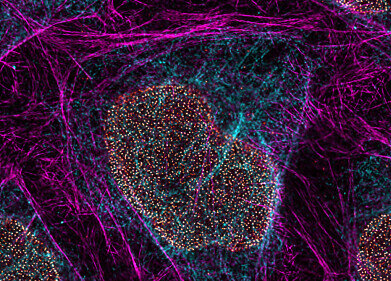Microscopy & Microtechniques
Can Genetics Affect Your Capacity to Exercise?
Mar 10 2020
While exercise seems to come naturally to some people, others find it an ongoing struggle. Now, new research from King's College London has confirmed the discovery of a genetic mutation that hinders capacity to exercise. The findings were published in The New England Journal of Medicine, with the team outlining the discovery of the genetic mutation that impedes a person's ability to efficiently workout.
The mutation affects the von Hippel-Lindau (VHL) gene, which senses cellular oxygen and plays an important role in helping cells survive when access to the vital chemical element is reduced. VHL mutations impair functionality in the mitochondria, an organelle that exists in most cells. Compared to people with normal mitochondrial function, VHL mutations have a negative impact on the body's ability to carry out aerobic exercise.
New research unlocks "deeper understanding of human physiology"
The King's College London team tested the theory on a patient who was experiencing limited growth, ongoing low blood sugar, high red blood cell count and limited exercise capacity. After carrying out genetic and protein analysis, the team noted a mutation in the VHL gene.
Dr Federico Formenti, one of the lead authors of the study and a Senior Lecturer at the School of Basic & Medical Biosciences says, "The discovery of this mutation and the associated phenotype is exciting because it enables a deeper understanding of human physiology, especially in terms of how the human body senses and responds to reduced oxygen availability."
New insight into mechanics of hypoxic mutations
The findings build on previous research revealing the existence of a genetic syndrome that limits the body's ability to absorb oxygen and as a result, alters the human metabolism and interferes with skeletal muscle function. All three studies explored the concept of hypoxic genetic mutations that impact oxygen sensing pathways and jeopardise optimum function of the human body.
From shedding light on genetic mutations to developing treatments for dementia, science is at the forefront of medical breakthroughs. For a closer look at the network of seven state-of-the-art PET-MR scanners established by Dementias Platform UK (DPUK), don't miss 'Tackling Dementia with Cutting-Edge Brain Imaging Technology.'
Digital Edition
Lab Asia 31.2 April 2024
April 2024
In This Edition Chromatography Articles - Approaches to troubleshooting an SPE method for the analysis of oligonucleotides (pt i) - High-precision liquid flow processes demand full fluidic c...
View all digital editions
Events
Apr 25 2024 Istanbul, Turkey
Apr 28 2024 Montreal, Quebec, Canada
May 05 2024 Seville, Spain
InformEx Zone at CPhl North America
May 07 2024 Pennsylvania, PA, USA
May 14 2024 Oklahoma City, OK, USA


















